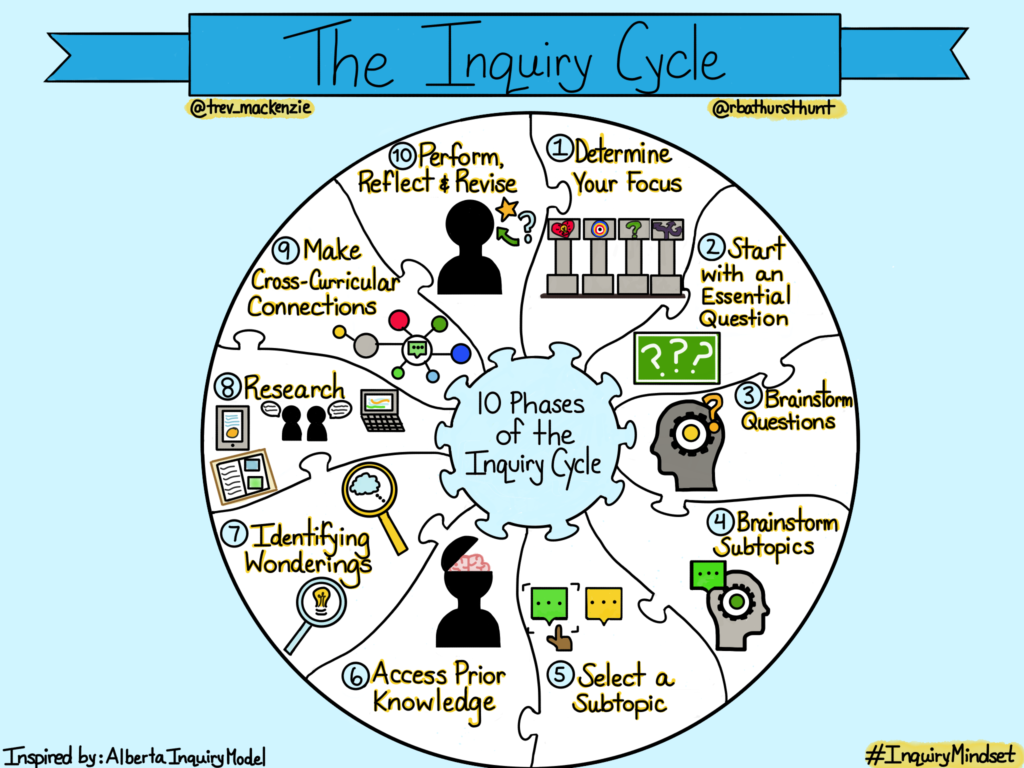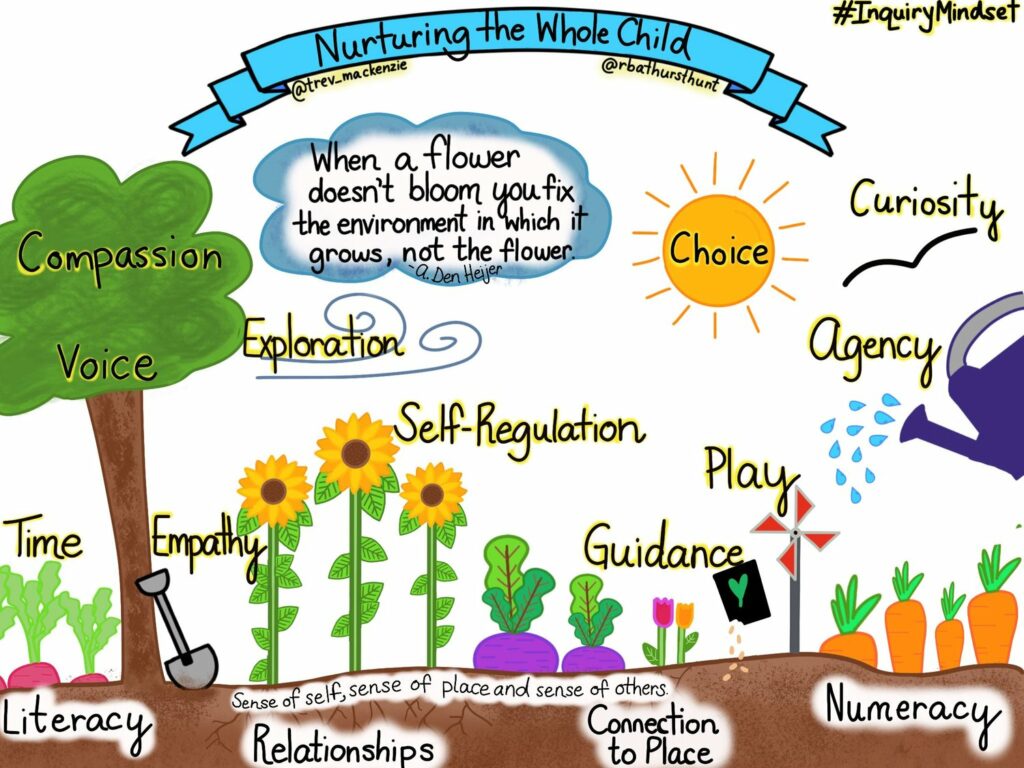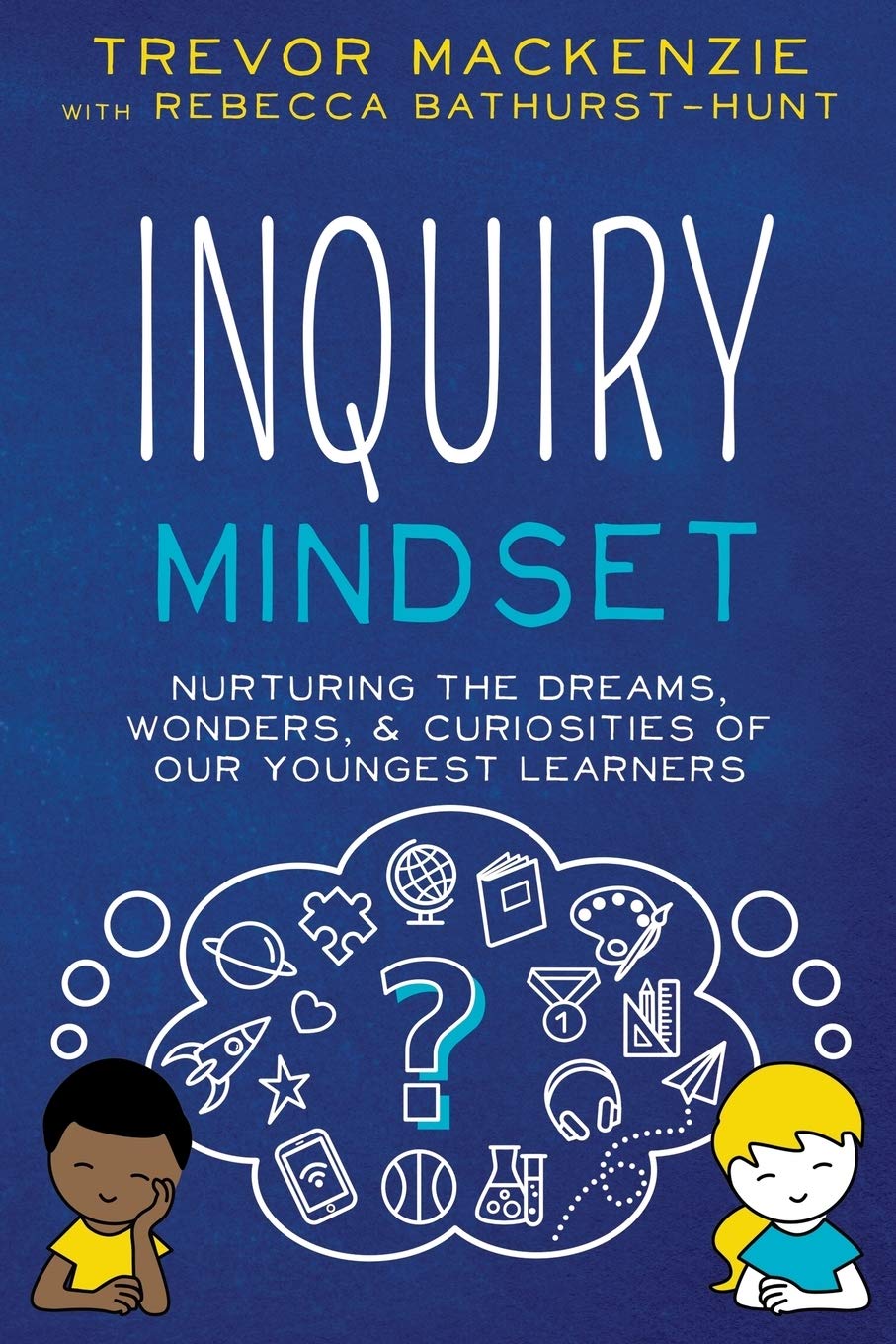
Going through the process of becoming a teacher has been rewarding and inspiring in many ways but can also feel overwhelming and right now (whilst I wait for practicum) intangible. The idea of being well versed in a wide variety of subjects, creating structure, being professional and being the caretaker of 20+ kids for 8 hours of the day is A LOT. That’s why I relish the moments that remind me of why I wanted to become a teacher in the first place.
Today we were visited by Trevor Mackenzie, author of Dive into Inquiry and Inquiry Mindset. During his presentation, my passion to teach was completely reaffirmed; Trevor sure has a way with words! You can see how he would be the most sought after to facilitate workshops for pre-service teachers and educators alike. His thoughts and methods about inquiry based learning as a pedagogy are inspiring. They aren’t inspiring because they are the latest in educational trends, but because they hold true, to what I think, authentic education should look and feel like.
Trevor had us unpack our childhood memories of when we went through school and had us take a hard look at what bias’s might have formed from our own schooling. He invited us to take a good hard look at ourselves and who we are as people and as educators. How might we uncover those bias’s and work to reshape how we perceive education ‘should be’? How can we allow students the space to create and shape their own learning? It’s interesting because a few points I had written down that were absent from my schooling were: lack of project-based learning, static – not a lot of movement, only given 1 option to demonstrate work, teacher-centered, not hands-on. And if I think about who I am now and my values as an educator, my budding pedagogy incorporates all of those elements. I somehow have held onto those missing aspects and have deemed them to be of significance to me and how I learn, and now how I teach.
But, Trevor said it best when he said, “What I was good at in school, doesn’t mean that’s what’s best for my kids.” And I believe that rings true for educators and their pedagogues. Just because I love project-based learning, visual arts, and creating doesn’t mean that should be my sole entry point into how I teach every lesson. What inquiry has really shown me is that my role is to help students learn what’s of importance to them and discover how they learn best through what interests them. Perhaps some will like project-based learning, some may prefer stories, videos, etc – not everyone will benefit from the visual and hands-on learning that is so important to me and how I learn.
Inquiry enables you to see your students for who they truly are. What a beautiful way to build and establish friendships! And hey, the fact that I don’t have to create a bunch of different lesson plans and perhaps get out of grading papers is pretty cool too.
↠———————————————————↞

Key Take-Aways
- What I was good at in school doesn’t mean that is what’s best for my students.
- Am I doing something for my students that they should be doing for themselves?
- Have agility – pivot and respond to student interest and needs
- Not all inquiry is ‘free inquiry’
- Scaffold! Scaffold! Scaffold!
- Seek to create relationships and encourage students to learn more about you, themselves and their peers
↠———————————————————↞
Featured Image: Inquiry Mindset by Trevor MacKenzie and Rebecca Bathurst-Hunt
Image 1: The Inquiry Cycle by Trevor MacKenzie and Rebecca Bathurst-Hunt
Image 2: Nurturing the Whole Child by Trevor MacKenzie and Rebecca Bathurst-Hunt





belladeehr
March 1, 2021 — 9:07 pm
Tesla, it appears we are having very similar experiences. Online learning is disheartening sadly, because we are so removed from the world we are working towards. I could not agree more about how inspiring the talk with Trevor was. THE PASSION IS BACK! I loved the echoed sentiment of the importance of a continuous and deep reflective practice.
Thank you for reminding me that he said “What I was good at in school, doesn’t mean that’s what’s best for my kids.” You’re right, we cannot help but think only from our own perspective… but the point of inquiry based learning and pedagogy is so each student can learn in a way that works for them, not a way that worked for us. I have a feeling we’ll all be thinking about this lecture for many years to come.